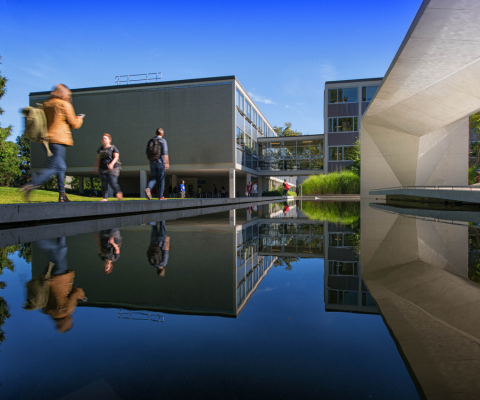Equipping university students for a digital future

This op-ed was published in the Montreal Gazette on August 25, 2020.
By Graham Carr, president of Concordia University
There’s no question virtual delivery of courses this fall will upend the traditional “campus experience,” but there are upsides.
By now, most university students and their parents accept that virtual delivery of the fall semester makes good public health sense. Yet many remain concerned about what that will mean for academic quality, student life and social equity.
There’s no question the pandemic will upend the traditional “campus experience,” a fundamental component of a university education. Yet, as millions of students around the world head into a very different fall term where most teaching will be online, this virtual learning experience can, through innovative approaches, benefit students and society at large. These virtual environments allow universities to add an important dimension to the transformative impact of higher education.
Everywhere in Canada, dedicated faculty and the curriculum teams supporting them have responded to COVID’s disruptions by redesigning courses for online delivery come September. Realistically, the summer is too short to develop every university course to its full online potential. But the lessons learned from working in a virtual format will enhance both future online learning and the next generation of in-person course design.
Digital learning is neither new nor daunting to most current students. Before COVID, 65 per cent of Concordia students had taken at least one course online. In June a Canada-wide poll revealed that three-quarters of students believed online learning can be better, equal to, or almost as good as in-person courses.
In fact, the virtual environment often brings out the best in students. Although it may seem counter-intuitive, many students understand that online learning can actually be more personalized than in-person courses. Some appreciate the flexibility to engage with material on their own time. Others are more willing to participate actively in class by asking written questions and joining teams and chats with peers, as opposed to raising their hand in a lecture hall or going to see a professor.
Similarly, many faculty members find it’s easier to monitor student progress online by using digital analytics.
But perhaps the greatest unexpected benefit of e-learning is how it relates to the changing nature of work.
Two years ago, Concordia began to develop a comprehensive digital strategy. As a first step, we surveyed our students. Overwhelmingly, they felt digital skills were critical to their employability — and told us we weren’t doing enough to hone those skills.
Today, the necessity to function intelligently in the digital environment is pervasive. As a result, online education has become a new type of experiential learning.
This fall, students will get credit for mastering the same subject competencies they would in a face-to-face context. But they’ll be acquiring that knowledge in a virtual environment more reflective of their future workplace. With international students joining in from around the world, this new experiential learning will include managing real-time global collaboration.
To create the sense of community that is core to campus life, universities will need to innovate by moving student clubs online, developing virtual activities with external partners, sponsoring remote hackathons and more.
This is not to say that online learning and the virtual campus experience will be ideal everywhere, can replace traditional classroom teaching, or overcome the disappointment of “not in person.”
But the semester ahead will better equip students for a digital future.
Frankly, the more worrisome point about the fall term is that it will expose equity gaps in students’ access to the technology and internet services required to fully experience the digital learning environment. That’s not a challenge universities can address on their own. That’s why we welcome the announcement by Higher Education Minister Danielle McCann of an additional $375 million in funding. The money will go toward supporting university students and helping higher education institutions adapt to this new reality.
If, as a society, we are really determined to create a promising new normal after COVID, we need the private and public sectors to invest in a bright digital future for all.
About Universities Canada
Universities Canada is the voice of Canada’s universities at home and abroad, advancing higher education, research and innovation for the benefit of all Canadians.
Media contact:
Lisa Wallace
Assistant Director, Communications
Universities Canada
[email protected]
Related news
-

New report shows Canadian universities’ commitment to climate action
-

Canada's universities welcome significant investments in research, students and mental health in Budget 2024
-

BCDI 2030 launches second round of funding for scholarship projects for study in Canada
-

Urgent action for our publicly-funded universities critical to Canada’s economic stability and growth
